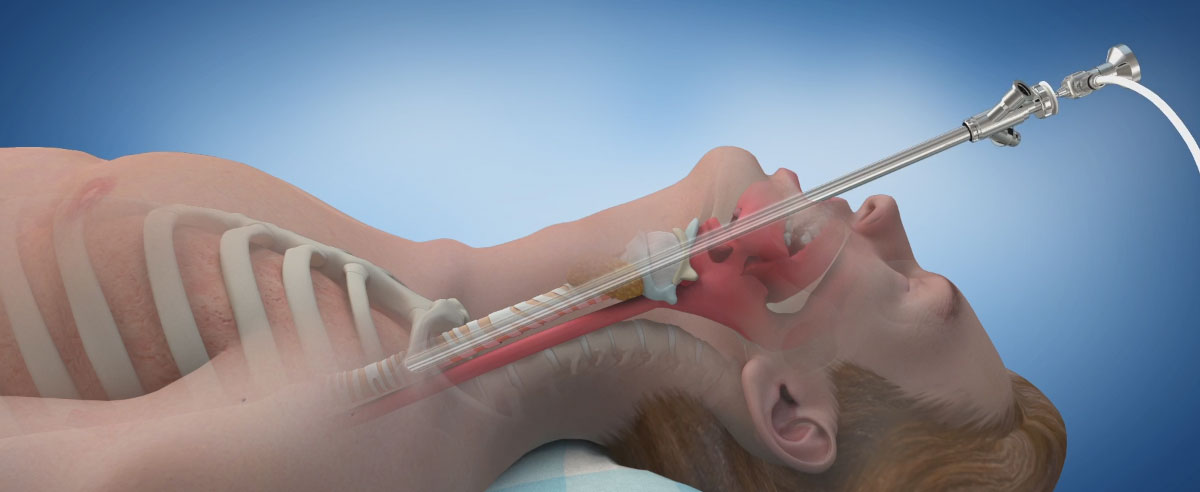Bronchoscopy
Bronchoscopy is a medical procedure that allows doctors to examine the inside of the airways and lungs using a specialized instrument called a bronchoscope. Here's a brief overview of bronchoscopy:
Bronchoscope:
A bronchoscope is a flexible or rigid tube with a light source and a small camera at the end.
Flexible bronchoscopes are more common and can navigate the smaller airways.
Procedure:
- The patient is usually given local anesthesia to numb the throat and, in some cases, mild sedation to relax.
- The bronchoscope is inserted through the nose or mouth and guided down the throat and into the airways.
- The doctor can view the airways in real-time on a monitor.
Uses:
- Visual examination of the trachea (windpipe), bronchi, and bronchioles.
- Collection of tissue samples for biopsy.
- Removal of foreign objects or mucus plugs.
- Treatment of conditions like lung cancer, lung infections, and airway blockages.
Risks:
- Bronchoscopy is generally considered safe, but there are some potential risks, including bleeding, infection, or a reaction to anesthesia.
